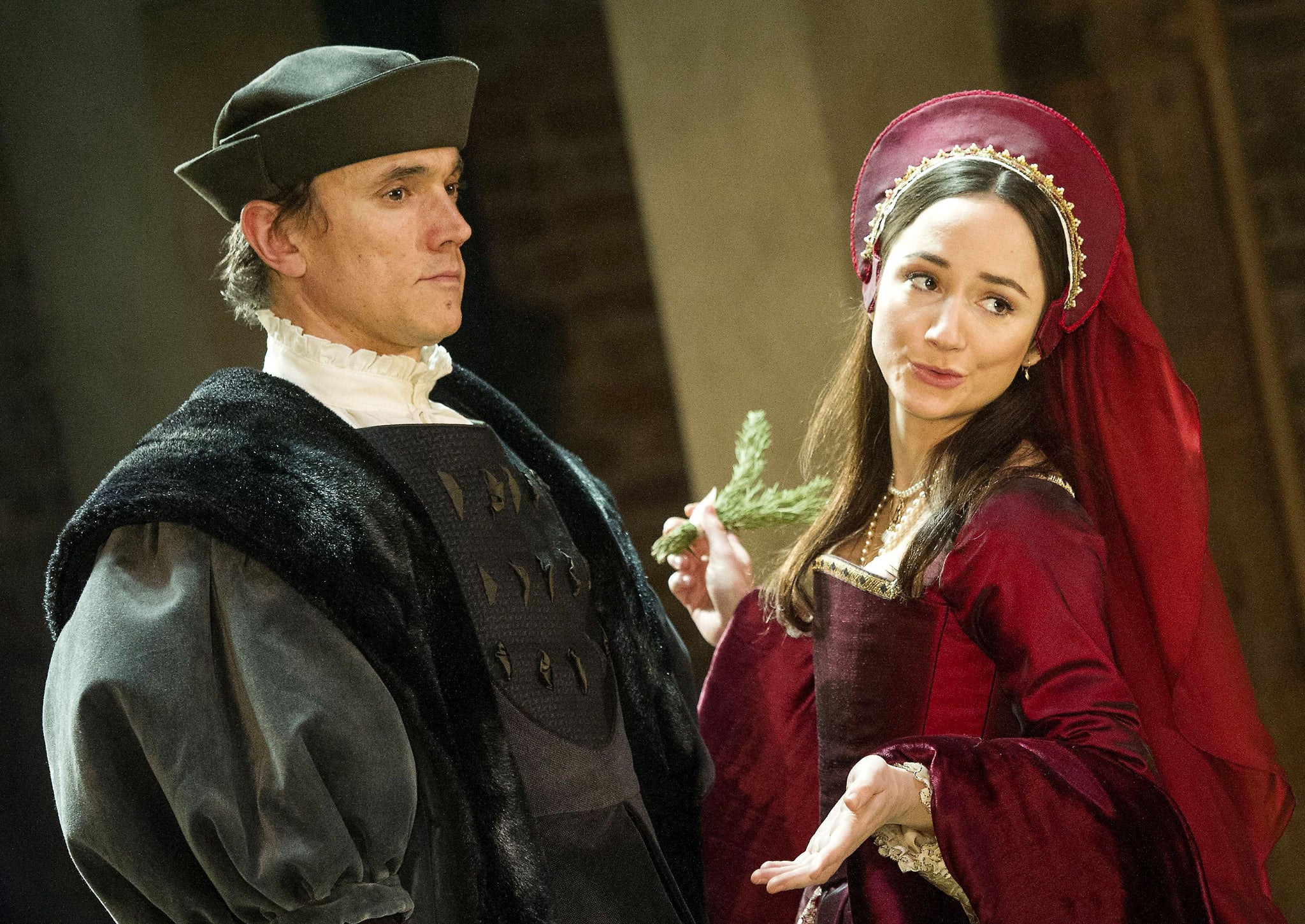Wolf Hall/Bring Up the Bodies, theatre review: 'Exhilarating stage-craft and masterly narrative compression'
Swan Theatre, Stratford-upon-Avon

One hesitates to use the phrase “a marriage made in heaven” in the vicinity of Henry VIII but that would be a fair way of describing this brilliant union between the RSC and Hilary Mantel.
The Company has just unveiled its epic six-hour stage version of her two prize-winning novels which view the English Reformation and the deadly intrigues of the Tudor court from the vantage point of Thomas Cromwell, the Putney blacksmith's son who rose to be royal fixer-in-chief.
The marathon press performance began at 1pm and, after a dinner break, concluded at 10pm. But such is the dramatic skill of the adaptation by Mike Poulton (with whom Mantel has worked closely) and the unflagging power and fascination of Jeremy Herrin's fleet, incisively acted production that, if the final instalment of the trilogy had been completed and turned into a play, I would gladly have stayed up all night.
There are inevitable losses in the transition from page to stage - from the atmospheric richness of Mantel's prose to the flashbacks to formative experiences in Cromwell's past, such as his witnessing, in boyhood, the pitiless auto-da-fe of a female heretic.
But Ben Miles is superlative at conveying the inner complexities of the man – the shrewd watchfulness, the sense of banked-down grief, the little flashes of sardonic humour. David Starkey once described Cromwell as “Alastair Campbell with an axe” but in these plays we get a thoroughly three-dimensional figure.
He's a protagonist who remains bravely loyal to his mentor Wolsey (a witty, worldly Paul Jesson) even when it is risky to do so and is appalled when the latter's memory is mocked in a lampooning court interlude “The Cardinal's Descent into Hell” (staged with vindictive exuberance here). The four noblemen who cavorted as the disembowelling devils will eventually pay the ultimate price for that prank.
Nathaniel Parker's handsome, strapping Henry VIII subtly shows you a man who can bring himself to believe what he needs to believe but not without some self-pitying twinges of conscience. There's horror and pitch-black comedy in the process whereby, when Anne Boleyn cannot produce a male heir, Cromwell is called upon to assemble forced and false confessions of adultery.
In tense, lethally well-paced interrogations, the Tudor world seems to be offering a terrifying foretaste of 1984 and twentieth century totalitarianism. “You cannot make my thoughts a crime,” argues one of the accused. “But I can, you see”, argues Cromwell. Intentions now can send you to the block.
Lydia Leonard brings out Anne's shrill, unnerving volatility when she's in the ascendant and her peevish snobbery towards Cromwell whom she insists she created. In fact, as her downfall signifies, they are both dependent on the King which is why Cromwell speaks, in a sudden moment of empathy, about how she has been left an “impostor” by the removal of the royal favour.
One false move and it would all be over for him too. The twist at Anne's ending is typical of the exhilarating stage-craft and masterly narrative compression in a double-bill that must surely have a long life beyond Stratford.
Subscribe to Independent Premium to bookmark this article
Want to bookmark your favourite articles and stories to read or reference later? Start your Independent Premium subscription today.

Join our commenting forum
Join thought-provoking conversations, follow other Independent readers and see their replies